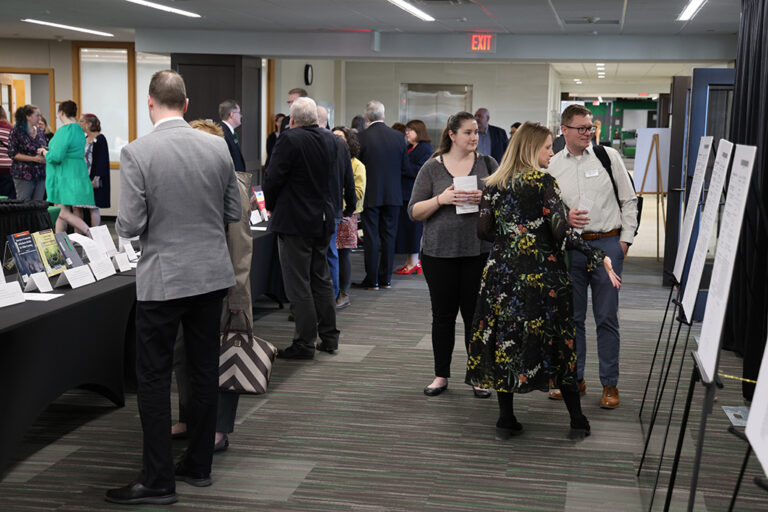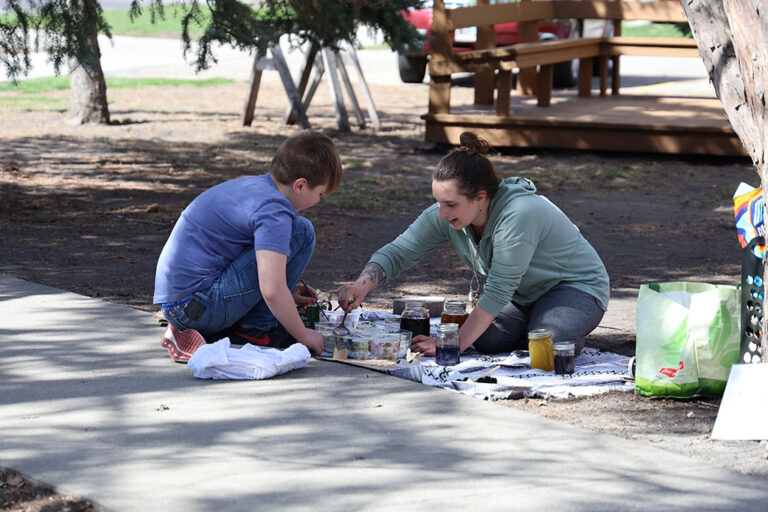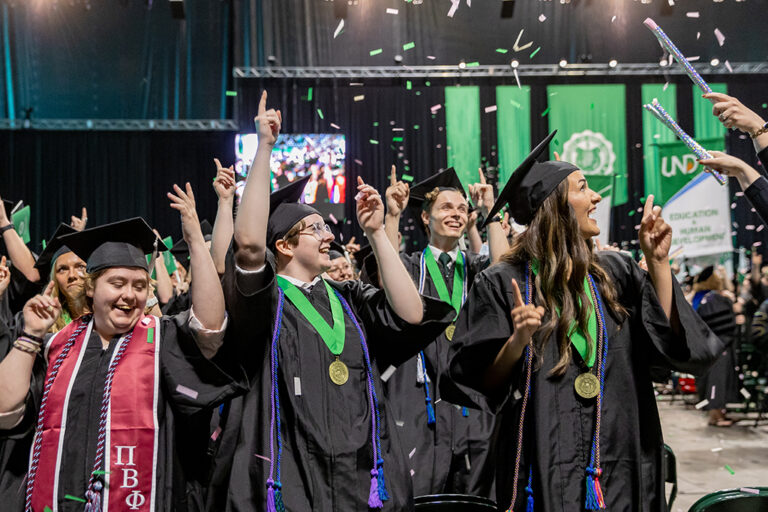In honor of Martin Luther King Jr.
UND and the city of Grand Forks honor Martin Luther King Jr. Day

The University of North Dakota and the City of Grand Forks joined together last Wednesday to confer the Dream in Action awards, marking the third year the recognition has served as a reflection on the legacy of Martin Luther King Jr.
Presented by Mayor Mike Brown and UND Interim President Joshua Wynne, the Awards honored four recipients whose work promotes and advances social equity. Held at the Gorecki Alumni Center, the award ceremony took place on Jan. 15, Martin Luther King Jr.’s birthday, ahead of Martin Luther King Jr. Day, which was observed on Jan. 20.
Those recognized were LaVonne Fox, UND associate professor of occupational therapy; Michelle Rudz, executive director of the High Plains Fair Housing Council in Grand Forks; the Thunder Robotics team of Hatton-Northwood (N.D.) High School students; and UND’s Department of Occupational Therapy for its work with the Global Friends Coalition.
An audience of about 80 students and community guests applauded as the honorees walked on stage to receive an elegant glass statuette molded in the shape of an elongated flame.
Minutes after stepping off the stage and returning to his seat next to his six peers from Thunder Robotics, Dylan Enger was elated when he chatted about the acknowledgment.
“It means a lot to us,” said Enger, a high school junior, “seeing all of the attention that it’s brought in.”
What Enger referred to is a special project his team carried out last summer. Usually focused on building contraptions that can scurry around, pick up and throw items, Thunder Robotics in 2019 assembled a motorized wheelchair for Emma Basting, a 4-year-old left paralyzed by a spine tumor.

Late last year, the crew presented Emma with her black-and-pink wheelchair, which she can easily maneuver with a joystick.
The team’s ingenuity and benevolence to a toddler they had not meet before has drawn attention from local newspapers and TV stations.
“And, now we are getting this award,” said Enger. “It shows that people really do care that other people are doing good, which is good to hear considering a lot of media focuses on the negative today.”
Like the students behind Thunder Robotics, the faculty of UND’s occupational therapy department serve those in need. Under the leadership of Associate Professor Sarah Nielsen, the department has developed a practicum for UND students to teach English to and mentor new Americans in Grand Forks’ Red River High School.
Holding the statuette and surrounded by colleagues, Nielsen said the award was a “special honor,” attesting that “we’re doing what we want to do, which is to help our students really think of all people and treat all people fairly and in an equal manner.”

Janet Jedlicka, chair of the department, added, “I think we really try to instill in students that it’s more than just a job. It’s part of being an engaged citizen, someone who makes a difference in people’s lives no matter where they are.”
A role for everyone
Albeit unintentionally, Jedlicka’s sentiment also summarizes the intent of the following day, Jan. 16, when UND’s Office of Diversity & Inclusion held an informal “Lunch & Learn” gathering to discuss the legacy of Martin Luther King Jr.
Around a dozen students of various backgrounds and academic pursuits took part in a lively conversation, prompted by a single question, “When you hear MLK, what comes to mind?”
For Julius-Patrice Johnson, a graduate student in public health, Martin Luther King Jr. evokes a personal association, even if it is a rather distant one. Johnson, who is originally from California, followed his brother to Morehouse College, a private historically black men’s higher-education institution in Atlanta.
Johnson attended Morehouse only briefly, but decades before him, King earned a bachelor’s degree in sociology from the college. King went on to enroll in a seminary and later earn a Ph.D. in theology from Boston University.
“Part of what allowed MLK to transcend and become such a global figure recognized across all ethnicities was his education,” Johnson said. “Because when you’re able to have that Ph.D. behind you, you’re ‘validated’ by the mainstream society, so your voice has more weight in people’s minds.”
While remembering King as the leader of the Civil Rights movement in the 1960s, Johnson and the rest wondered whether a figure of his social stature could emerge today. Exploring this inquiry, the students prodded the need and meaning of activism as well as the impact of social media, among other modern-day issues.
The conversation stretched beyond the one hour that “Lunch & Learn” events usually take. And at one point during the discussion, Director of Student Diversity & Inclusion Stacey Borboa-Peterson offered an observation, a response to students’ questions, that doubled as a memorable message to take away.
“Being an activist does not have to be everyone’s role. That’s okay.” said Borboa-Peterson. “Ignoring injustices because they don’t affect you, that’s not okay. Everyone has a part in this work.”


